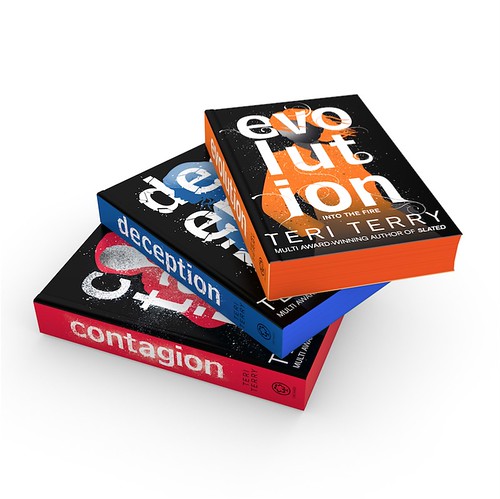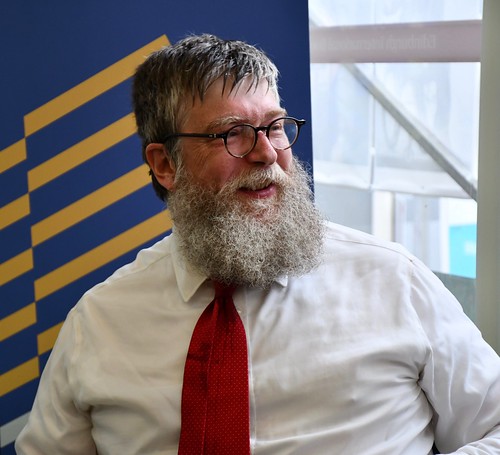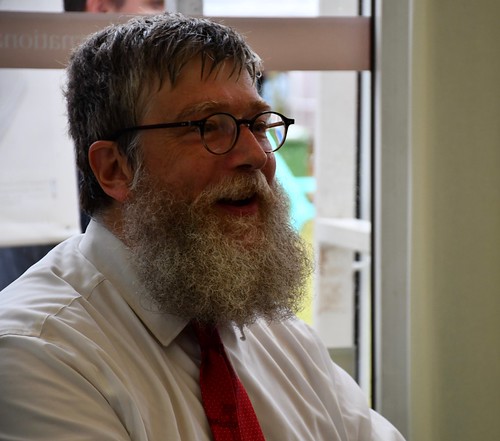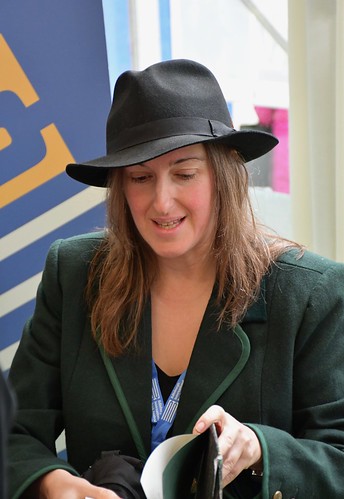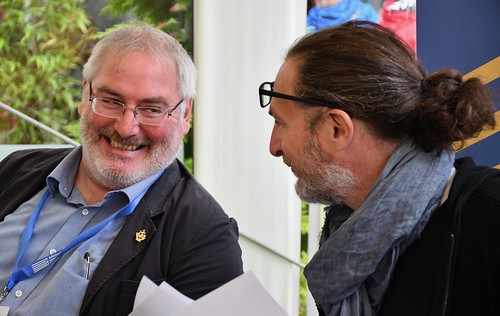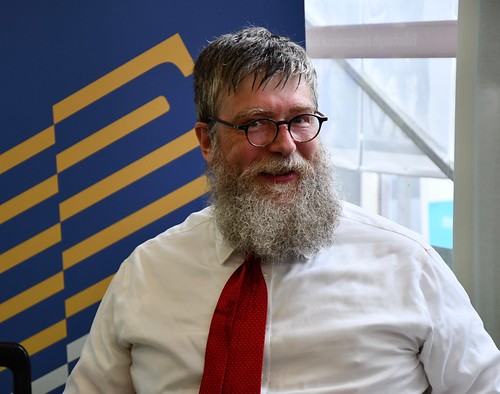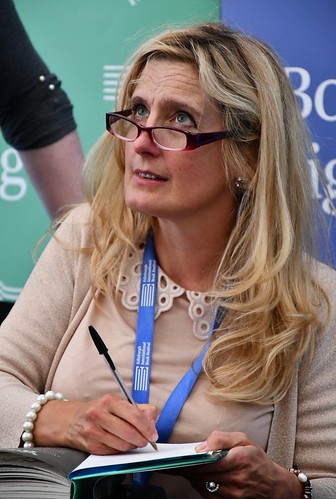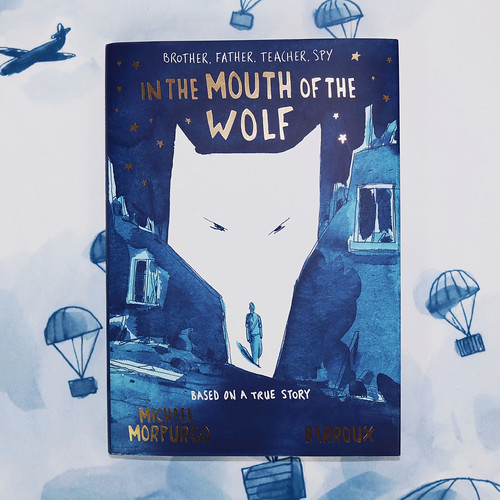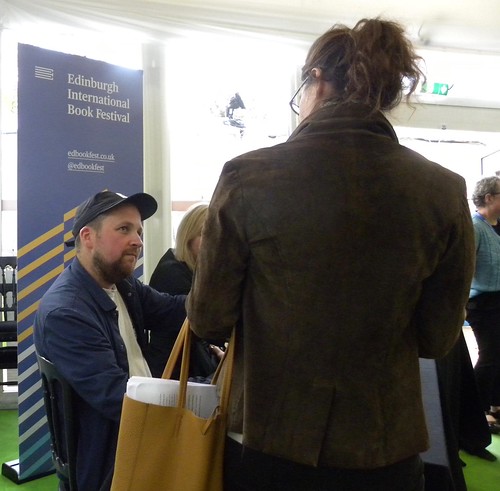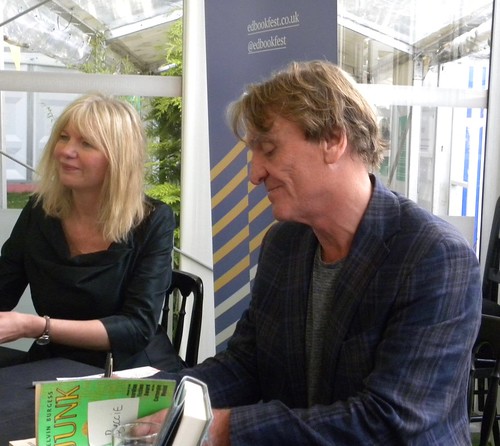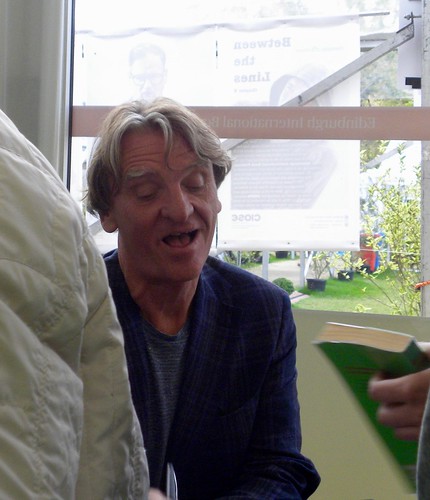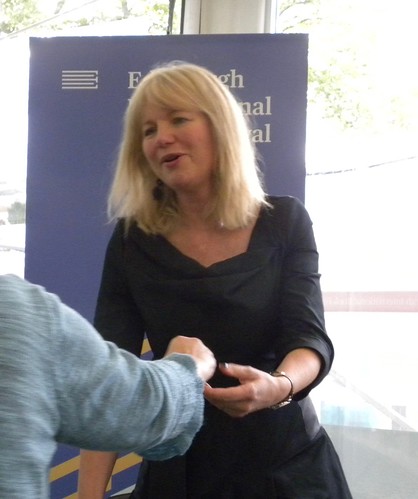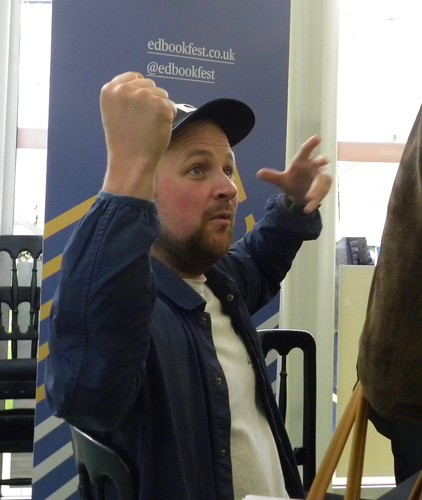Those were Michael Morpurgo’s words, but we would have loved him whatever he did. He decided he was most comfortable sitting down. His [event]chair, Alex Nye, grew so comfortable that she re-titled Michael’s book which he’d come to talk about, making it In the Mouth of the Lion, until Michael mildly said ‘I thought it was the Wolf..?’
You don’t get much past Michael Morpurgo. He must be a dream to ‘chair’ because he knows quite well what he’s going to be doing and he will go ahead and do it, no matter what. Never mind that he ‘mocked’ his illustrator for his Frenchness; you could tell there was much respect between the two of them, and he told us we must buy Barroux’s In the Line of Fire.
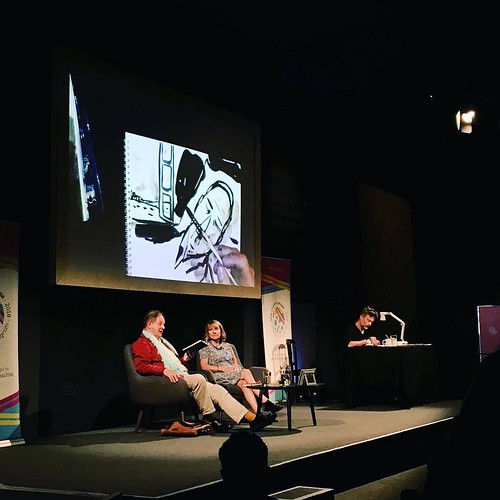
He began by reading to us, sitting down and being handsome, the first two chapters from In the Mouth of the Wolf. ‘They’re quite short. Don’t worry, it won’t be too boring.’ It wasn’t. And even those early chapters were enough to make us want to cry.
While Michael read, Barroux illustrated, showing us the views from [Michael’s uncle] Francis’s bedroom windows, saying he’s not a good illustrator. He prefers a bad drawing with a lot of emotion in it. Barroux also showed us his three different cover ideas for the book, explaining that it’s the publisher’s choice; not his.
When it was time for questions, the first was about Kensuke’s Kingdom. Michael was a little startled by this, but gave a long, considered answer, and then asked for the remaining questions to be about his new book. Because what authors need is to sell books, so they can have new socks, and J K Rowling has many many cupboards full of socks.
Barroux ‘hates fairies and unicorns’ because he can’t draw them, and he’s only recently learned to do dolphins. As Michael answered a question on freedom for his characters – who, of course, are not characters, but were real people – Barroux stealthily began to draw a dolphin. When discovered in the act, he was told that the whole entente cordiale was just then in danger.
Michael pointed out to his audience that in WWII, and for centuries before that, Britain was never occupied, while Europe was. In fact, not since William the Conqueror a thousand years ago… And we know where he came from.
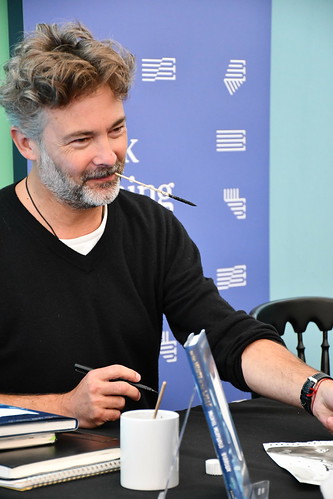
Asked about his passion for books, Michael said he’s more passionate about the reading of books. You should catch fire when reading, to reach those who never read. Currently he is working on several things; translating Le Petit Prince, putting words to The Snowman, and writing a new version of Gulliver’s Travels with Michael Foreman illustrating. He’s portraying Gulliver as a recent refugee, washing up somewhere new.
By then we’d overrun by at least five minutes, but Michael said he was going to sing for Barroux. There is a film being made of Waiting for Anya, and in it there is a song Michael likes very much. He sings it in the bath.
And ignoring his suggestion that we think of him in the bath – or not – or that he pretended the theatre’s doors would have to be locked to prevent us escaping, Michael stood up, still handsome, and he sang to us, and to Barroux.
It was a beautiful ending to a beautiful event, and to our book festival.

